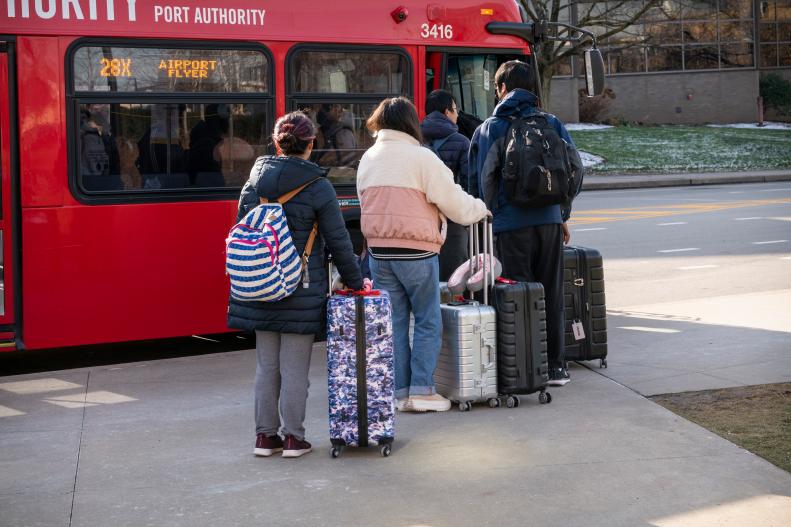1 / 11
Photo: Kevin Lorenzi/Carneige Mellon University
Staying Healthy on the Road
There are a number of practical things you can do to keep healthy when traveling, whether you are packing your bags for a quick overnight trip or a long overdue vacation. One is having a go-bag stocked with vitamin C, hand sanitizer, vitamin D3, a magnesium supplement (which may help ease your nervous system, keep digestion processes regular and improve sleep quality) and healthy snacks to keep your energy level high when you are on the go. Read on for some other tips on how to make sure you are taking care of your body and your health when you are on the go.









